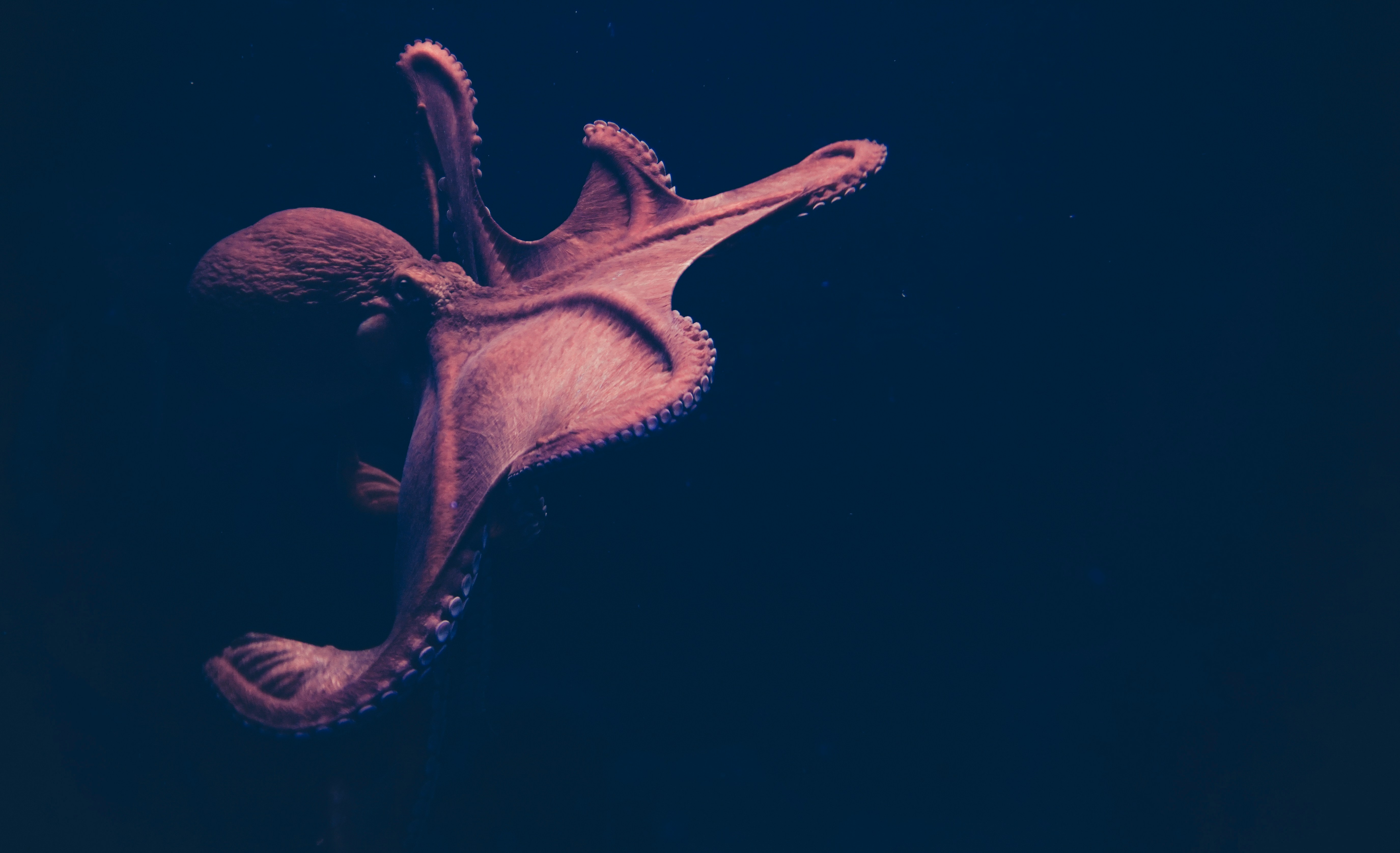Octopuses: Masters of Escape and Intelligence

Category: marine | June 7, 2025
Octopuses have long fascinated scientists and ocean lovers alike—not just for their alien appearance, but for their uncanny intelligence and Houdini-like escape skills. With no bones and a body made almost entirely of muscle, an octopus can squeeze through impossibly small gaps, unscrew jar lids from the inside, and even open tank valves in aquariums. These aren’t just party tricks—they’re evidence of a highly developed nervous system and problem-solving ability that stands out among invertebrates.
What makes octopuses truly remarkable is their distributed intelligence. About two-thirds of their neurons are located not in the brain, but in their arms. Each arm can act with a degree of independence, sensing, reacting, and even exploring its environment without direct input from the brain. This allows octopuses to multitask in ways we can barely comprehend, such as camouflaging while manipulating objects or sneaking through tight crevices while scouting for food.
In captivity, octopuses have been observed recognizing individual humans, escaping their tanks to raid nearby enclosures for food, and learning from observation. In the wild, they’ve been seen using tools like coconut shells for shelter or piling rocks to block their den entrances. Their ability to learn, remember, and adapt to new situations rivals that of some mammals, challenging long-standing assumptions about what intelligence looks like in the animal kingdom.
These cephalopods are solitary, curious, and capable of astonishing feats that blur the line between instinct and cognition. As researchers continue to study their behavior and neurology, octopuses are becoming ambassadors for a new way of thinking about intelligence—one that doesn’t rely on warm blood or a backbone, but instead on adaptability, exploration, and raw creativity.
🌴 Jungle Chatter
Most popular reactions:
No reactions yet.